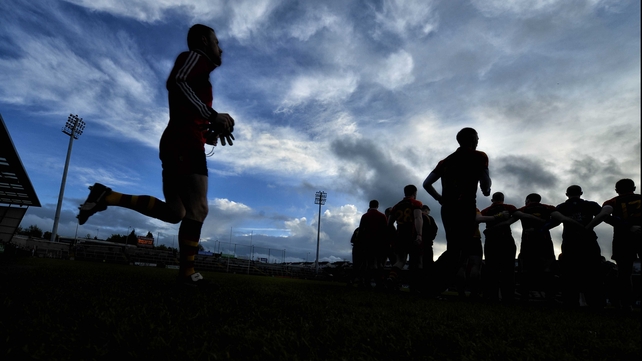Gaelic Players Association chief Dessie Farrell believes that players are looking for support not salaries and have no interest in Gaelic Games becoming professionalised.
Farrell also feels that the players association has a very important role in helping players to cope with the commitments and pressures of inter-county football or hurling as well as aiding with career development and well-being off the field of play.
“I don’t see pay for play coming on the agenda,” Farrell told RTÉ Sport. “Because to professionalise the game and pay players would change the game dramatically. There would be less teams, the county boundaries may be diluted, and the advent of agents would creep into the game.
“So when you ask players and you spell it out, players aren’t interested in that. They’re interested in the games; the way they are at the minute.
“They enjoy them and of course, they see the requirement for support in other vital areas of their lives, through education, career development, emotional health, well being and life skills; that is the type of support they want.
“It’s not about salaries; players don’t play the game for the salaries. They play because they love the sports and they love the camaraderie within the club and within the county team and that’s what drives players on.”
And the former Dublin All-Ireland winner was quick to refute remarks made by Joe Brolly at the weekend stating that players are essentially putting their lives on hold between the ages of 20 and 30 and spending too much time jumping from scholarship to scholarship, which is having an adverse effect on their career opportunities away from the game.
“Less than a third of our players are in third level education,“ said Farrell. “So the majority of our players are in the workplace and the notion that players are running from scholarship to scholarship doesn’t actually stack up.
“What we would be encouraging is that players do take a big-picture view of their career and the importance of these years as a top-class athlete, also being the formative years in their career outside sport and to put in place a personal development plan that can set them up for success in life for when they transition away from the game.”

Former two-time Derry All Star and RTE Sport analyst, Brolly, was also scathing about the pressures on the modern player, citing an example of inter-county players who were required to complete 28 days of training throughout the month of January.
Farrell admits that players are being asked to do more now than in previous years but the GPA CEO believes that it is ultimately down to the player to decide and to educate themselves about coping with training demands and the importance of rest and recuperation.
Speaking at the launch of the GPA’s Annual Report for 2014, Farrell emphasised the association’s commitment of the programme to ensure that county players are not committing to their sport at the expense of their personal development off the field of play.
“Due to the evolution of our game there is a greater commitment required to play at county level but that’s true of all sports. Standards improve so why should the GAA be any different.
“But it is really important from the perspective of the players, that if they are committing to an inter-county career, that they also strive to be the best they can be off the field of play and that’s why work in player development is really important and there is a huge amount of activity and engagement to help players maximise their potential off the field of play.
“The demands have increased but ultimately it’s the players’ choice. But there are challenges, particularly younger players who are operating on numerous different teams – under-21, senior, club and colleges – and that is a challenge that we hope to look at very closely this year.
"The GAA is unique in that regard, that players end up playing with so many teams and serve so many different masters, but it is important that we develop a culture within the organisation that the coaches, support staff and the players themselves are educated about the pitfalls of over-training and burnout syndrome, and about the importance of rest and recovery in their training schedule."

Farrell was also keen to point out the role that the GPA is undertaking with helping players to deal with life after their inter-county career is finished.
“One of our key challenges is to overcome player apathy towards life after sport,” emphasised Farrell.
“And there is a huge process of education and awareness that is required so that more and more players are set up for success after they retire from the county game.
“The transition is difficult and it is important that the void is filled and players have a real sense of purpose and meaning in their lives outside of sport.
“Many players become really wedded to their athletic identity but it is important that they discover what their other passions in life are and they pursue those with a real sense of purpose and excitement.”
